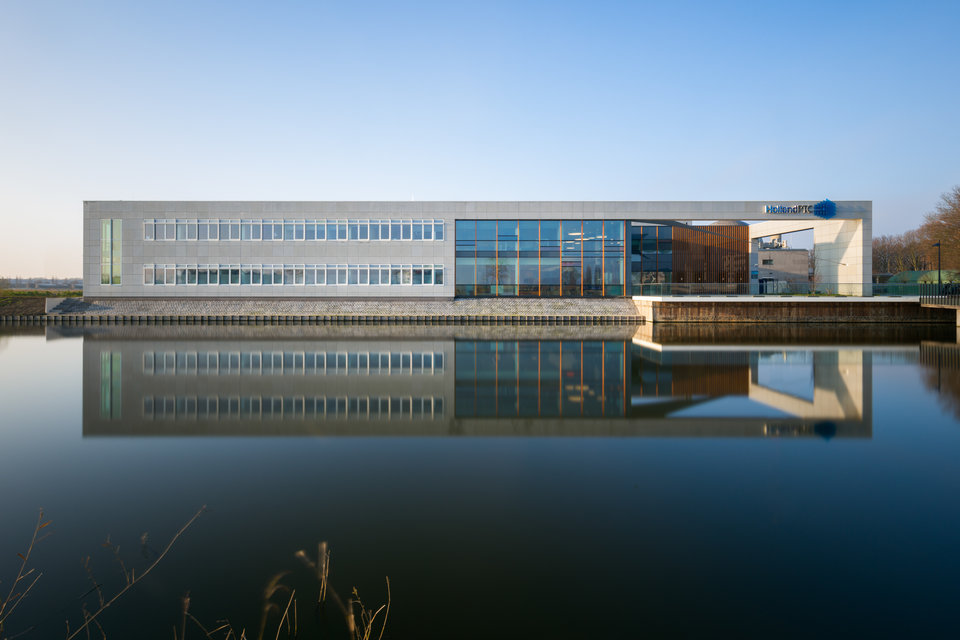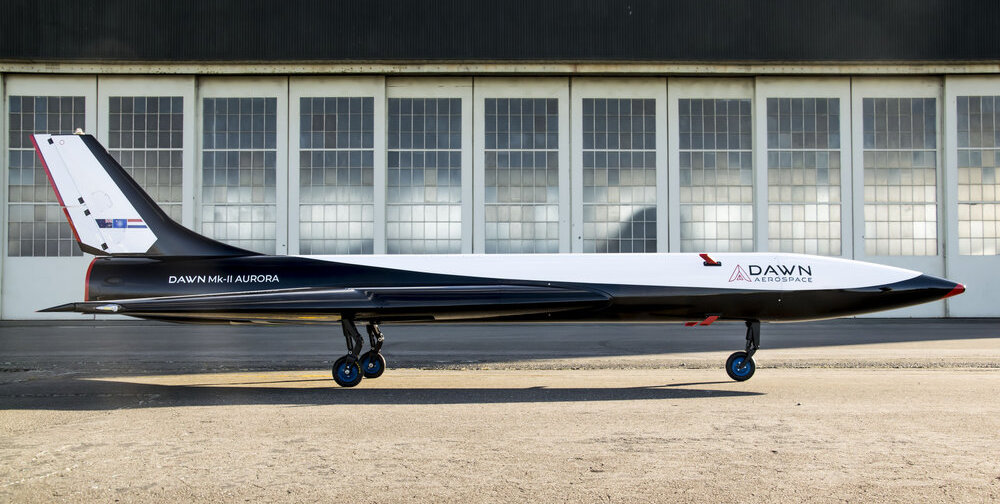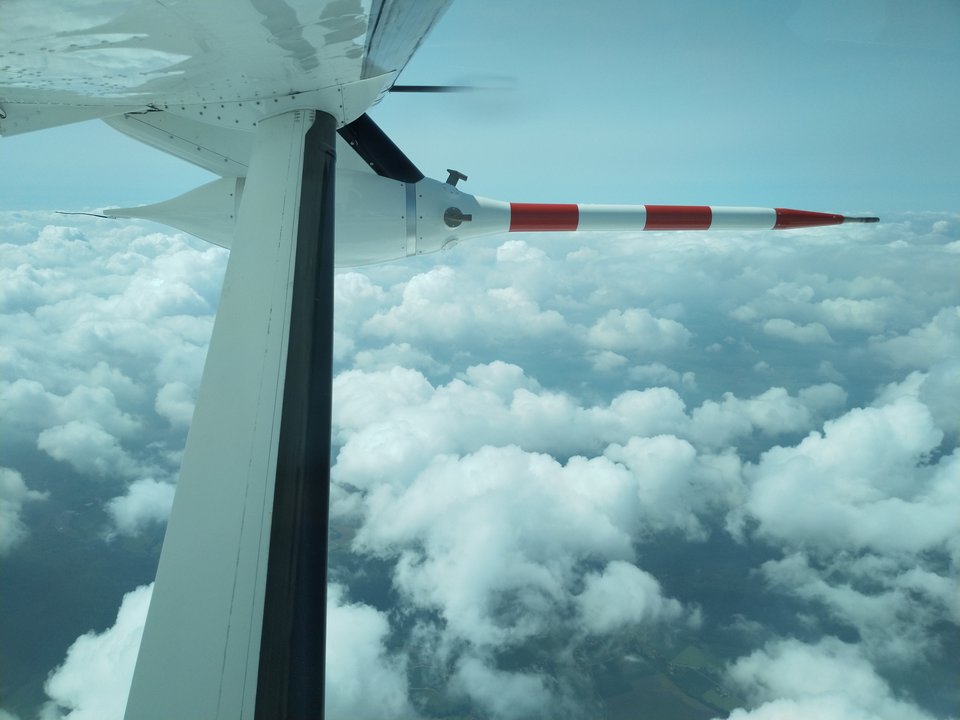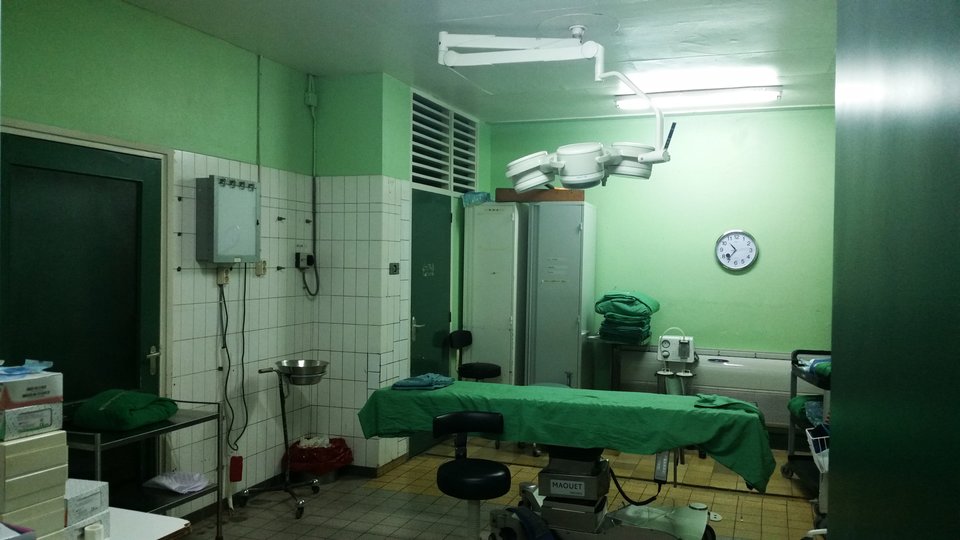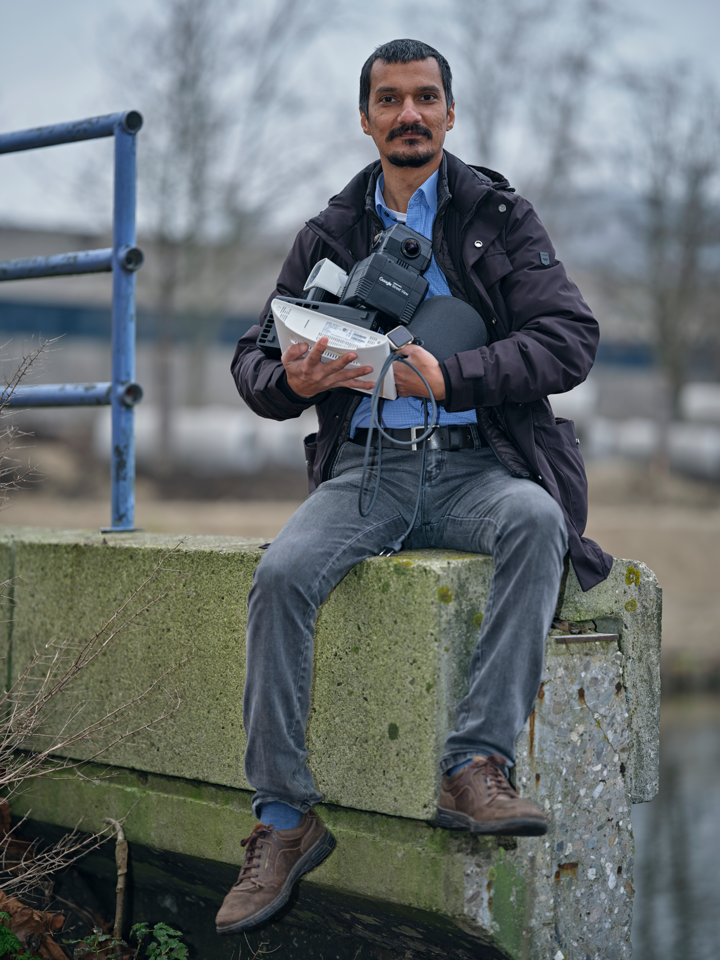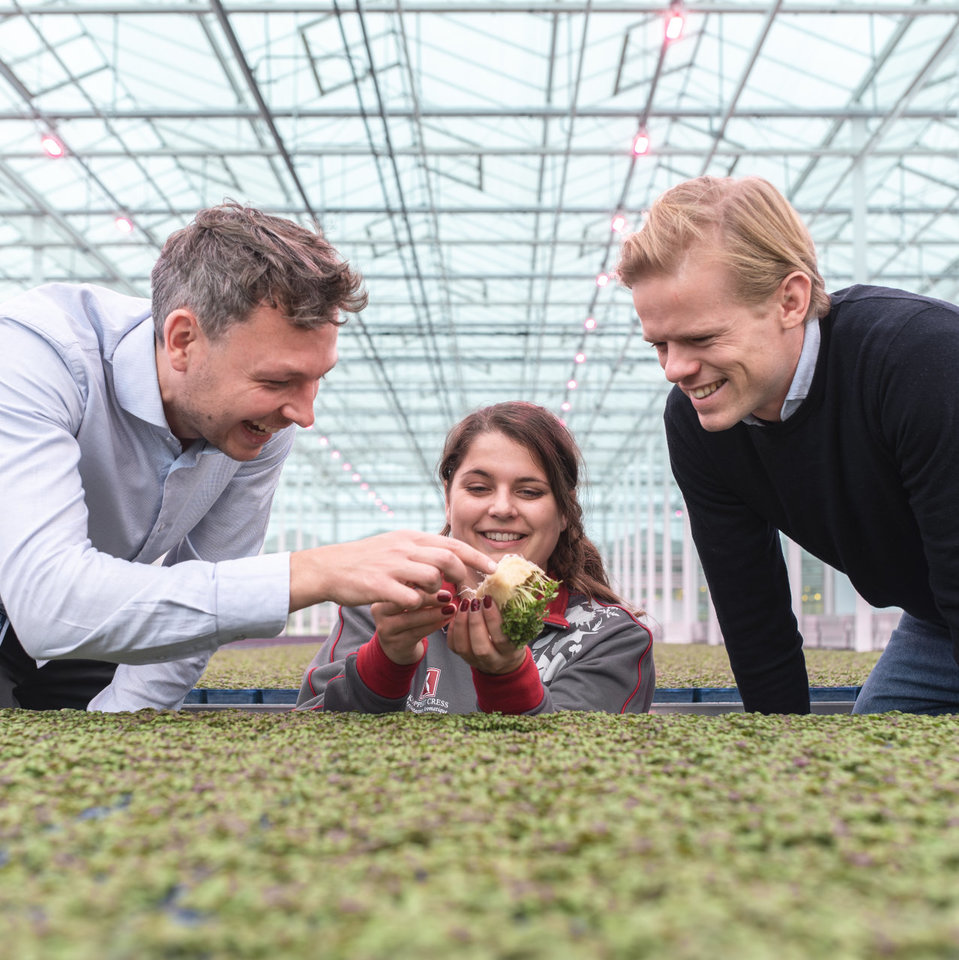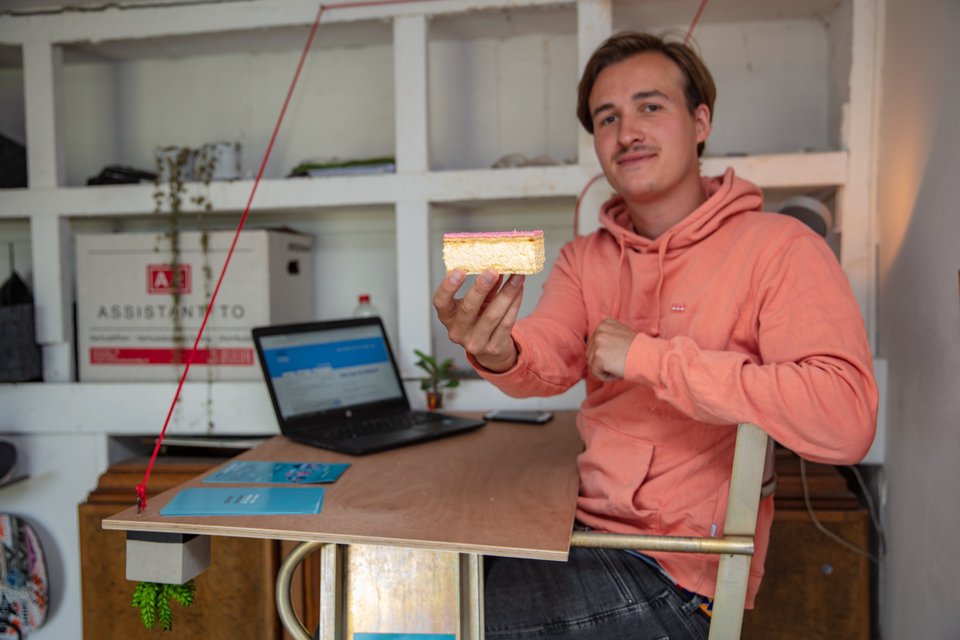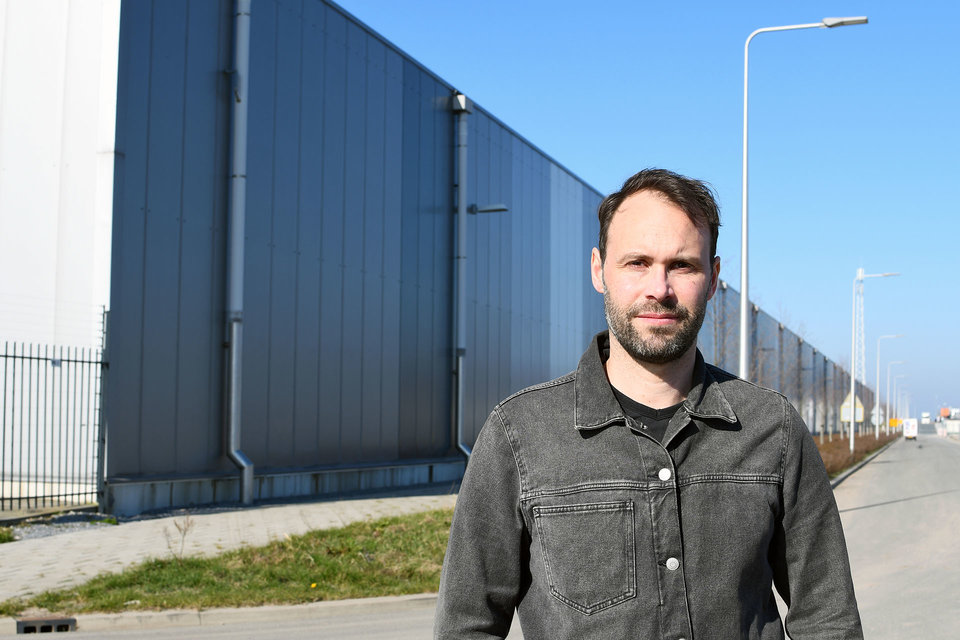From satellites that are launched into outer space from an aeroplane to predicting ticket prices based on an algorithm: the companies that are part of the Aerospace Innovation Hub (AIH) at the TU Delft Campus are developing groundbreaking innovations in the area of aviation and aerospace. Femke Verdegaal, a member of management with shared responsibility for the growth of the initiative, talks about bringing together industry, science, start-ups, and students with the aim of promoting innovation in aviation and aerospace. ‘We really function as a springboard.’
Photo: Dawn Aerospace
‘There was a need for a location for the further development of innovations’, says Verdegaal regarding the start in 2020. ‘When the space on top became available in the faculty, we were able to create such a location. We believe that co-operation leads to the best innovations. And we are more than glad to encourage such co-operation here.’ The community has 36 startups, 14 of which have offices at the Aerospace Innovation Hub. Dream teams AeroDelft and Tumbleweed are also based there.
Scientists and students in the same building
TU Delft Campus has several so-called start-up hubs, or incubators. Some are large and well-known, such as YES!Delft. Others are somewhat smaller, newer, and theme-driven, such as the Aerospace Innovation Hub. A unique aspect of the AIH is its location in the top part of the faculty building. ‘Our location ensures that co-operation between the entrepreneurs, scientists and students can flow freely with a minimum of obstacles. That's easier, of course, if you bump into each other in the same building.’
Professors with ideas
Each start-up has its own unique origin. Sometimes a company develops from a student’s graduation research whereby the students are bold enough to make the jump to becoming entrepreneurs. But it can also be based on the idea of a scientist. Funding is then available via the NWO-take-off-scheme of the government, supported by TU Delft. ‘A scientist may not always be able or willing to go into business and may then be happy to see motivated (former) students taking on the challenge of the business case for an innovation. We then often see that a professor remains involved behind-the-scenes’, explains Verdegaal.
Dawn Aerospace
This interface between research and entrepreneurship is also reflected in Dawn Aerospace. The company has developed an aeroplane that can be used to launch satellites into outer space, the MK-II Aurora. This so-called “space aeroplane” serves as a bridge between aviation and aerospace and can also make use of regular airports. Since the aeroplane can reach very high altitudes, satellites can be launched into outer space from it. This makes satellite launches simpler, more sustainable, and more affordable.
The enterprise has its origins in Dreamteam Delft Aerospace Rocket Engineering (DARE). The Delft Dreamteams have often served as a major source of inspiration, and this was also the case for Dawn Aerospace. In 2018, the company won the Aerospace Start-up Voucher, which give it the opportunity, via coaching and funding, to further build its business. The company is presently based in Delfgauw and also has a team in New Zealand. There, the company has ample opportunity for test flights. According to Verdegaal, the company offers interesting locations for graduate students and ‘they also know how to inspire our students and make them enthusiastic as regards entrepreneurship”.
Co-operation with industry
The link between industry and teaching is established proactively. There are, for example, many aerospace companies that share their challenges via the Joint Interdisciplinary Project. Co-operation between research and industry takes on a concrete form within projects. In this way, TU Delft gains insight into the challenges faced by the business community, whereas the industry receives inspiration from an interdisciplinary group of students. In turn, students are faced with real-life challenges and therefore learn a great deal about the practical side of their discipline. Companies such as KLM, SunEpress, Airbus, Embraer, GKN Aerospace and Jet Aviation have already participated.
Also, Airbus has an office in the Aerospace Innovation Hub in order to have a “front seat view” when it comes to innovations. ‘Airbus has a regular presence in the Aerospace Innovation Hub. This makes it possible for the start-ups to get a quick “reality check” for their innovations’, explains Verdegaal.
Industry and research institutions know the way to each other’s door. Recently, two initiatives were started that focus on improving the aerodynamics of aeroplanes in order to reduce their environmental impact.
Companies that “leave the nest”
Over the past years, Verdegaal has witnessed the growth of the AIH from nearby. ‘We really function as a springboard. It’s fantastic to see companies grow and, in some cases, fly off on their own.’ And as great as it is to see the successful start-ups fly off on their own, Verdegaal would love to see the companies settle down in Delft or in the vicinity so that the link with the hub can remain as vibrant as ever. That actually happens quite regularly.
A successful company that recently spread its wings is Bonanza.aero from TU Delft alumnus Dennis Michon. In the summer of 2020, he decided, together with three others, to start a company that can predict ticket prices with the help of an algorithm. Using this information, airline companies can optimise their ticket offerings. The team won the Start-up Voucher and moved their office from Haarlem to Delft. ‘The links with the industry and access to the professors and researchers at TU Delft were the primary reasons for their move here’, says Verdegaal.
And it soon led to results. Victor Rijkaart, who used to work at Airbus and GKN Fokker and who is involved in the AIH as an industry professional, coached the start-up. Success soon followed. As soon as August 2021, FLYR Labs, a financial software developer for the aviation industry, contacted Bonanza. The contact was very positive from both sides: FLYR founder Alex Mans turned out to have been a source of inspiration for Michon, and Bonanza.aero was acquired.
Entrepreneurship is infectious
The interest shown in the hub is growing. ‘We have worked to raise our profile, and the result is that more (former) students know how to find us. Of course, our location also helps us in that regard.’ The number of applications for the Start-up Voucher is increasing each year. ‘The “entrepreneurship virus” is infectious’, adds Verdegaal. ‘It’s great to see how companies from the business community inspire students to become entrepreneurs themselves.’
Who will be the next company to leave the nest? That’s something Verdegaal would prefer not to bet on. ‘There are a few companies in the mix with innovations that can really have a positive impact on the aviation and aerospace sector. The sector is going through major changes and focusing on sustainability. I am certain that “our” companies will make an important contribution in that regard.’

